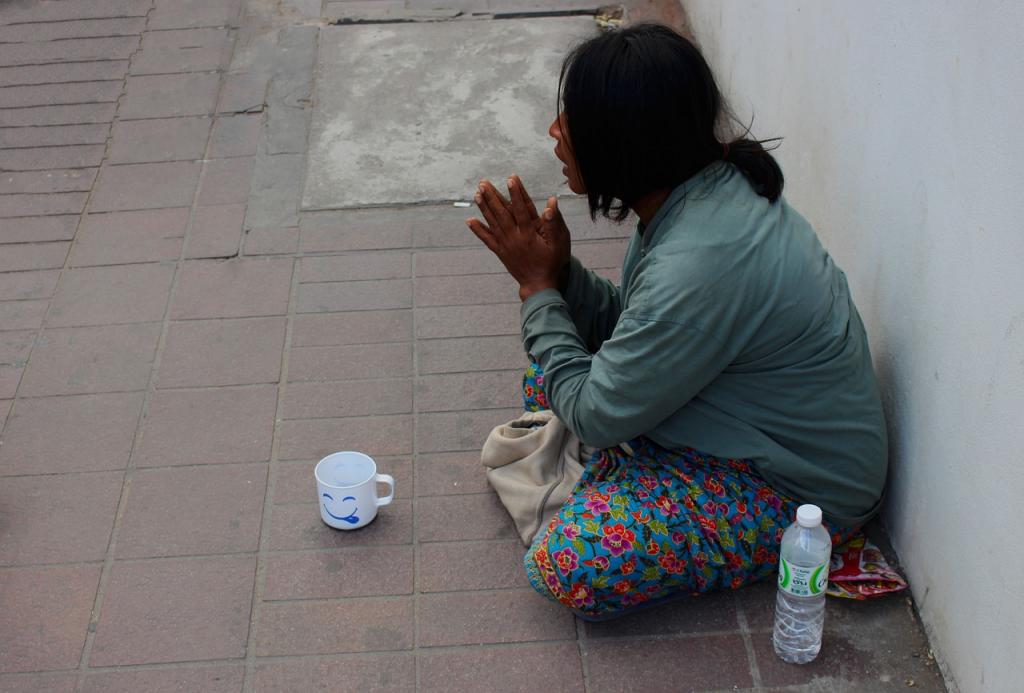Note: This post comes from a cross-cultural worker in East Asia.
It was a crisp, bright morning as I rode my bike to language class. About a block away from the school, I noticed a man sitting on the sidewalk begging for money. I immediately felt compelled to talk with him, but I had no time to do so as class was about to start. However, the next morning after class, I saw him sitting in the exact same spot as before. I felt compelled to talk with him again, and this time I had no excuse not to, but I rode my bike right past him and continued riding anyway.

Meanwhile, my spirit, unsettled within me, knew God was speaking to me to talk with this man, but I was afraid—afraid that I wouldn’t be able to successfully communicate with him, afraid that this interaction could potentially interrupt my day, afraid of what other people might think of me. Nonetheless, I turned around and after five minutes of silent prayer, I worked up enough courage to ask if I could sit with him. This led to us casually talking for about a half an hour.
Then I asked him if I could treat him to lunch. He agreed, but then he asked me something I will never forget: “Won’t this cause you to lose face?”
“Face” in East Asia
One thing you should know about this man is that his face and hands are completely scared due to being burned in an accidental kitchen explosion. For four entire years, he never stepped foot out of his house for fear of what others might think of him upon seeing his marred complexion.
You see, one of the things characteristic about East Asia is that its culture is heavily influenced by the principles of honor and shame. So much so that the reality of who one is (i.e., family of origin, education, job status, possessions, appearance) defines one’s perceived value in the eyes of society.
This notion of one’s perceived value or worth is commonly referred to as “face.” One can gain “face,” and one can lose “face.” To gain “face” is to be honored and esteemed by others. On the contrary, to lose “face,” is to be shamed and scorned by others.

Because this man literally “lost” his face due to scarring, and he can’t work due to disfigured hands, and the only way he can make a living for himself is by begging for money on the street, he is on one of the lowest levels of society. Thus, for me to associate with him, should cause me to lose “face,” since I am perceived to have a higher social status.
Face defines identity
However, I told him that I wouldn’t lose “face” because, as a child of God, my “face” comes from Him. I am free from worrying about what other people may think of me because my identity is not defined by others (although I sometimes struggle to believe this truth). While we were eating lunch, he asked me why I wanted to take him to lunch. I told him it was because I wanted to get to know his story. With tears welling up in his eyes, he said that no one had ever asked him about his story, much less a foreigner like myself.
As we were walking back to the spot where I had met him, he pulled a mask out of his backpack and showed it to me. He said that normally when he walks around town he wears the mask to cover up his disfigured face, but because I was with him, he didn’t have to! Simply by being with him, I was, in a sense, giving him his “face” back!
Although I may have lost “face” in the eyes of society that day by my actions, I believe I gained true “face” in God’s eyes as I lived in accordance with my identity in Him.
I emphatically proclaim along with David, “But you, O LORD, are a shield about me, my glory, the lifter of my head!” (Psalm 3:3, ESV)












